The duty of an officer of the Indian Police Services is to maintain the law and order in India. This, given the vast nation we form a part of and the diverse communities we have, is quite the feat—and one that Indian women have been excelling at. Here is everything you need to know about the top women IPS officers of India.
Who Are IPS Officers?
Officers of the Indian Police Service are people who have appeared for and passed the Union Public Service Commission (UPSC) exams. Apart from passing the prelims, mains and interviews for the UPSC, IPS officers also have to clear a physical test to qualify. Once they qualify, IPS officers are deputed to command and lead all the departments of the government that maintain law and order in the country. A few departments to which IPS officers are posted are the National Investigative Agency (NIA), Intelligence Bureau (IB), Research and Analysis Wing (RAW), Central Bureau of Investigation (CBI), Criminal Investigation Department (CID), Civil and Armed Forces, Central Armed Police Forces, the National Security Guards (NSG), National Disaster Response Force (NDRF), Crime Branch, Traffic Bureau and others in all states and union territories.
IPS officers are not simply bureaucrats, but have a key role to play in the internal defence of the country. The major responsibility they have is to exchange vital information with intelligence agencies and the federal law enforcement agencies of the nation to ensure that the law and order of the regions are maintained.
Women IPS (Indian Police Service) officers who have made India proud have not only shattered gender stereotypes but have also contributed significantly to law enforcement, national security, and social justice.
Recognizing their achievements is not just a matter of celebrating their individual successes; it's important for several reasons:Inspiration for Future Generations: Women IPS officers serve as role models for young women, inspiring them to pursue careers in law enforcement and public service. They prove that gender should not be a barrier to achieving one's goals.
1. Diverse Perspectives: Women bring diverse perspectives and problem-solving approaches to policing, which can be invaluable in addressing complex and sensitive issues like gender-based violence, human trafficking, and child exploitation.
2. Community Policing: Women IPS officers often excel in community-oriented policing. Their empathetic and approachable demeanor can build trust and cooperation between the police force and the community.
3. Gender Sensitivity: Women officers can better address cases involving women and children, ensuring a more sensitive and supportive response to victims of gender-based violence.
4. Improved Safety for Women: Having women IPS officers in leadership and operational roles can enhance the safety and security of women in society. It encourages more women to report crimes and seek help.
5. Encouraging Diversity in the Police Force: Celebrating the achievements of women IPS officers encourages greater gender diversity within the police force, which can lead to better decision-making and improved police-citizen relations.
6. Enhancing Law Enforcement: Women IPS officers have excelled in various roles, from crime investigation to counter-terrorism. Their contributions are integral to maintaining law and order, ensuring national security, and combating criminal activities.
7. Advocacy for Gender Equality: Many women IPS officers are vocal advocates for gender equality, both within the police force and in society at large. Their efforts go beyond law enforcement, contributing to social change.
8. Positive Image of the Police Force: The success and professionalism of women IPS officers can enhance the public's perception of the police force and improve its image.
9. Balancing Family and Career: Many women IPS officers effectively balance their professional and personal lives, demonstrating that it is possible for women to have successful careers while also managing family responsibilities.
10. Policy Influence: Women IPS officers often contribute to policy development and implementation, influencing decisions related to law enforcement, criminal justice, and public safety.
11.Recognition of Merit: Celebrating the accomplishments of women IPS officers reinforces the principle of recognizing and promoting individuals based on merit and competence, regardless of their gender.
In summary, women IPS officers who have made India proud are not just symbols of empowerment but also catalysts for change in the Indian police force and society. Their contributions are crucial for advancing gender equality, enhancing law enforcement, and promoting a safer and more just society for all.
Women IPS Officers in India
In India, IPS officers have a history that stretches back to the nineteenth century. In 1861, the British government introduced the Indian Councils Act, and created the modern police bureaucracy known as the Superior Police Force. This name was later changed to Indian Imperial Police, and after independence, it became the IPS corps.
Women have not been a part of the IPS since its inception. It was only in 1972 that Kiran Bedi, the only woman in a batch of 80 IPS officers, became the first woman to qualify. Just a year later, Kanchan Chaudhary Bhattacharya qualified as an IPS. Two years later in 1975, Jija Madhavan Harisingh became the first woman IPS officer from southern India.
Top 10 Women IPS Officers
Every year, there are more and more Indian women who qualify for the IPS and are given postings that they can make a difference to. Truth be told, there is no end to the women IPS officers who are making a difference in the nation every day. Here’s a list of 10 women IPS officers you should know about.
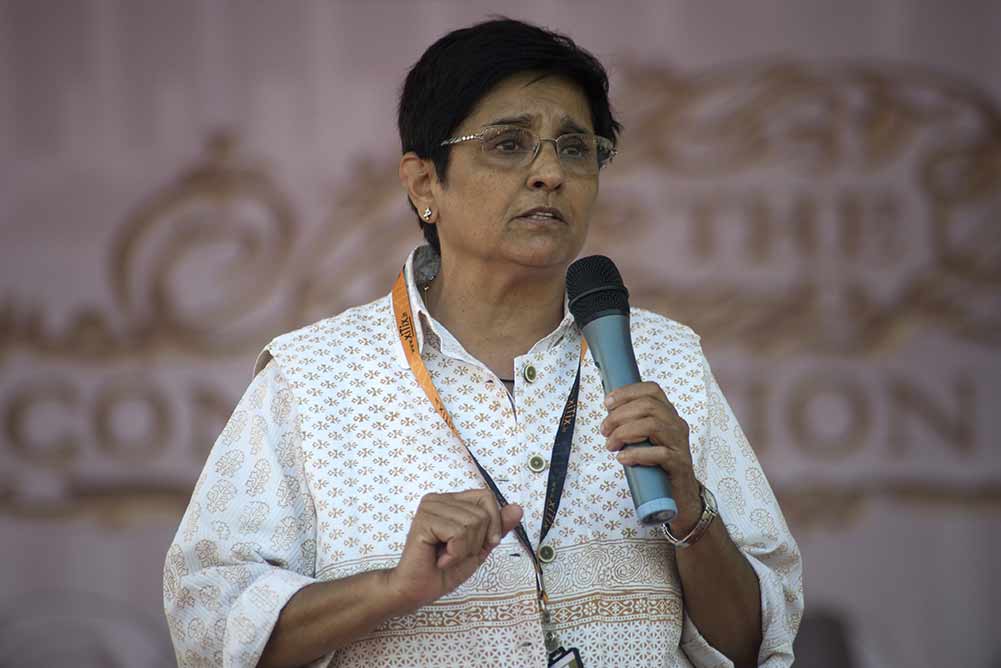
Kiran Bedi
Though retired now, Krian Bedi is very well known as the first woman to join the IPS in 1972. She remained in service for 35 years and has played a key role in many ways. She introduced remarkable reforms at Tihar Jail for which she gained worldwide fame. Bedi became the first Indian woman to be appointed Police Advisor to the Secretary-General of the United Nations in 2003 as a part of the Peace Keeping Operations Department. Between 2016 and 2021, she also served as the Lieutenant Governor of Puducherry. She now runs the Indian Vision Foundation, and has also authored several books.
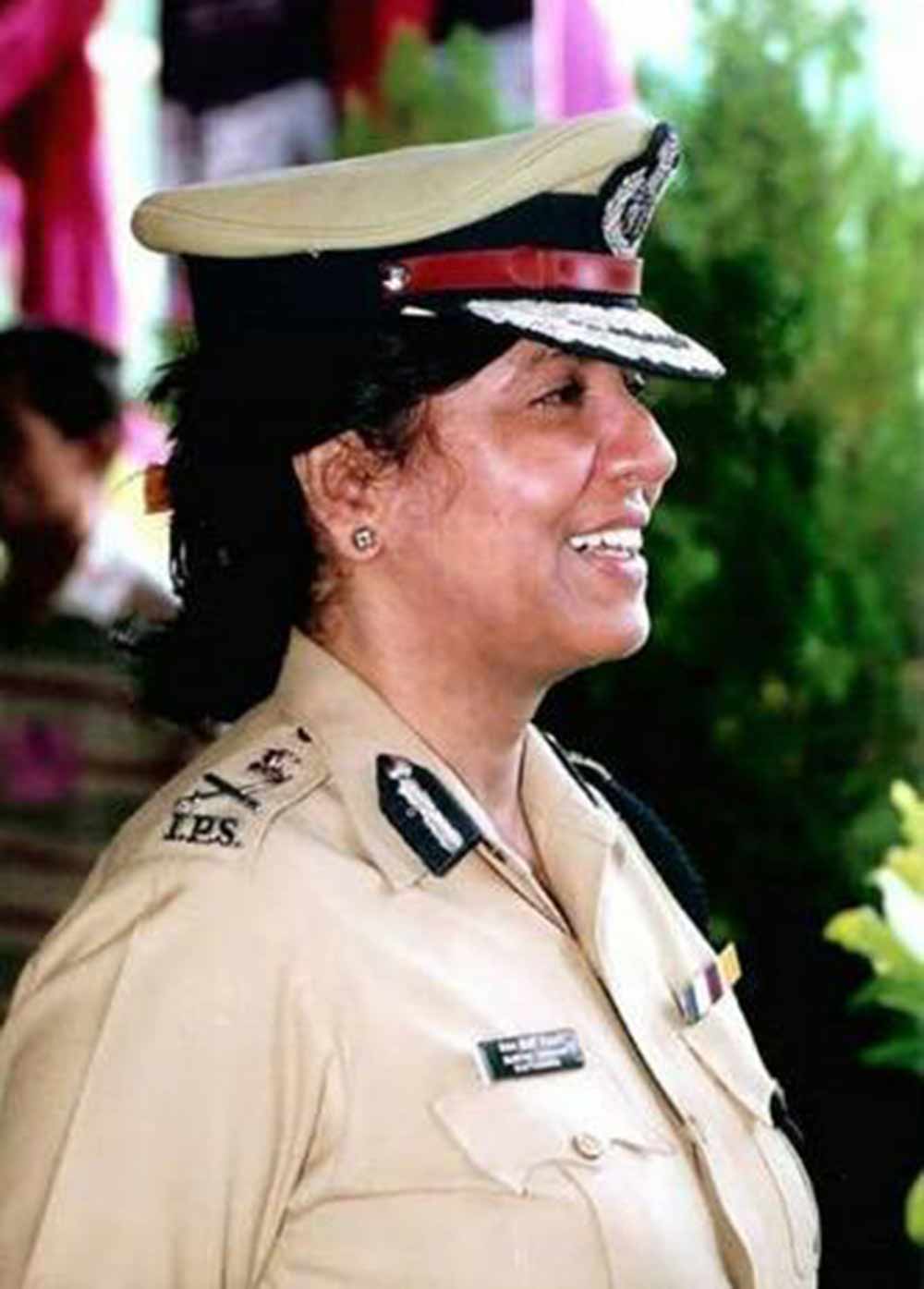
Kanchan Chaudhary Bhattacharya
The second woman to qualify as an IPS officer, Bhattacharya was also the first woman to become the Director General of Police in India. Posted to Uttarakhand and Uttar Pradesh for most of her 35-years-long career, she is perhaps best known for her work as the chairperson of the All India Women in Police. She won many accolades for her work, including the President’s Medals for meritorious services in 1989 and distinguished services in 1997, along with the Rajiv Gandhi Award in 2004. Bhattacharya died in 2019, at the age of 72, after a prolonged illness.
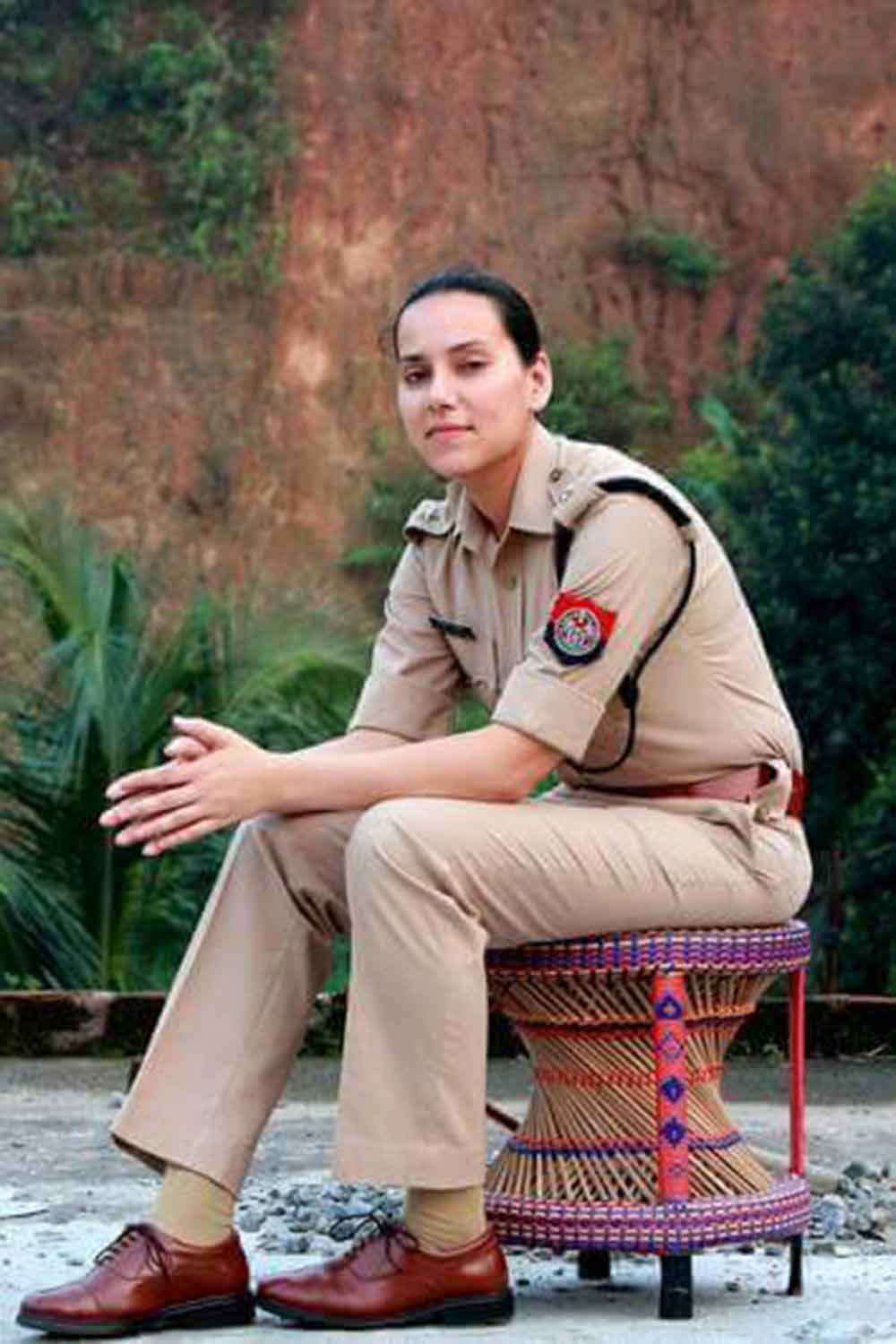
Sanjukta Parashar
Parashar, who qualified for the IPS in 2006, is very well known for the work she did in her posting in Assam. In fact, so remarkable were her achievements that she is better known as the Iron Lady of Assam. During her 15 months in Assam, she took down 16 Bodo militants, helped control the ethnic violence between Bodo militants and illegal Bangladeshi militants, and headed a CRPF team in Sonitpur’s terror-infested district. She also became the first Assistant Commandant of Makum in 2008.
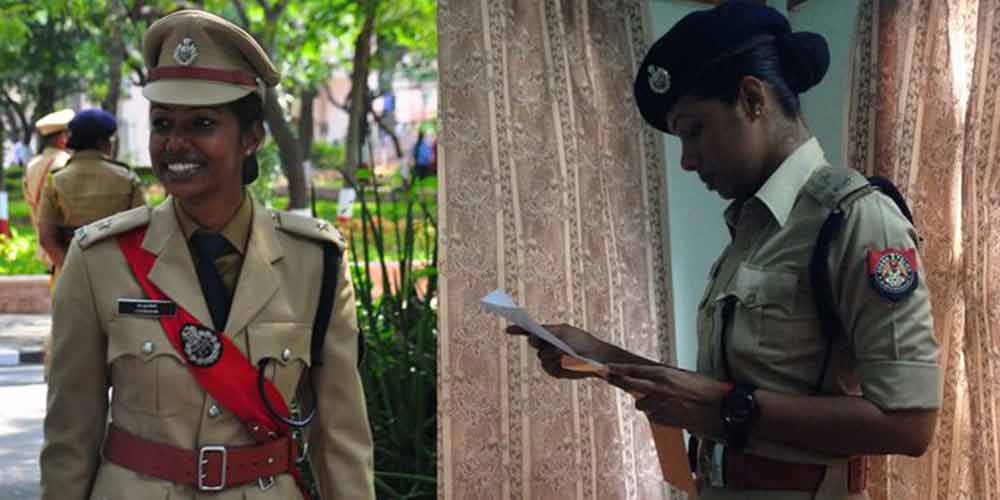
Subhashini Sankaran
Born in Tamil Nadu’s Thanjavur district, Sankaran passed the UPSC exams and qualified as an IPS officer in 2010. Since then she went on to become the first woman IPS officer to be put in charge of a chief minister’s security, when she handled the safety of Assam chief Sarbananda Sonowal. It was also during her posting in Assam that she busted a major rhinoceros poaching ring operating at the nearby Kaziranga National Park.
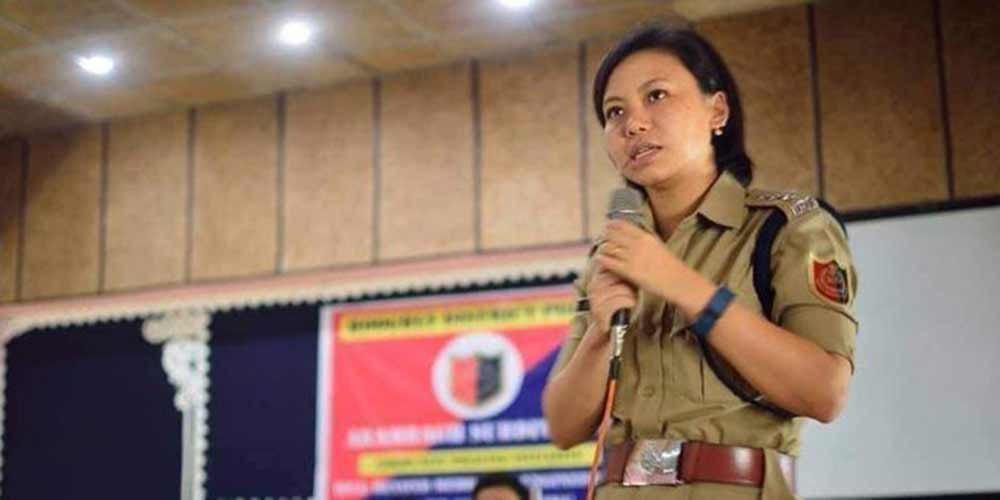
Aparajita Rai
Rai appeared for the UPSC exams twice and cleared them both times. During her second attempt, she scored the highest marks ever secured by a candidate from Sikkim, and qualified to become the first woman Gorkha IPS officer from the state. Since then, Rai went on to gather many accolades, including the Shri Umesh Chandra Trophy for Field Combat, the 55th Batch of Senior Course Officers Trophy, and the West Bengal Government’s trophy.
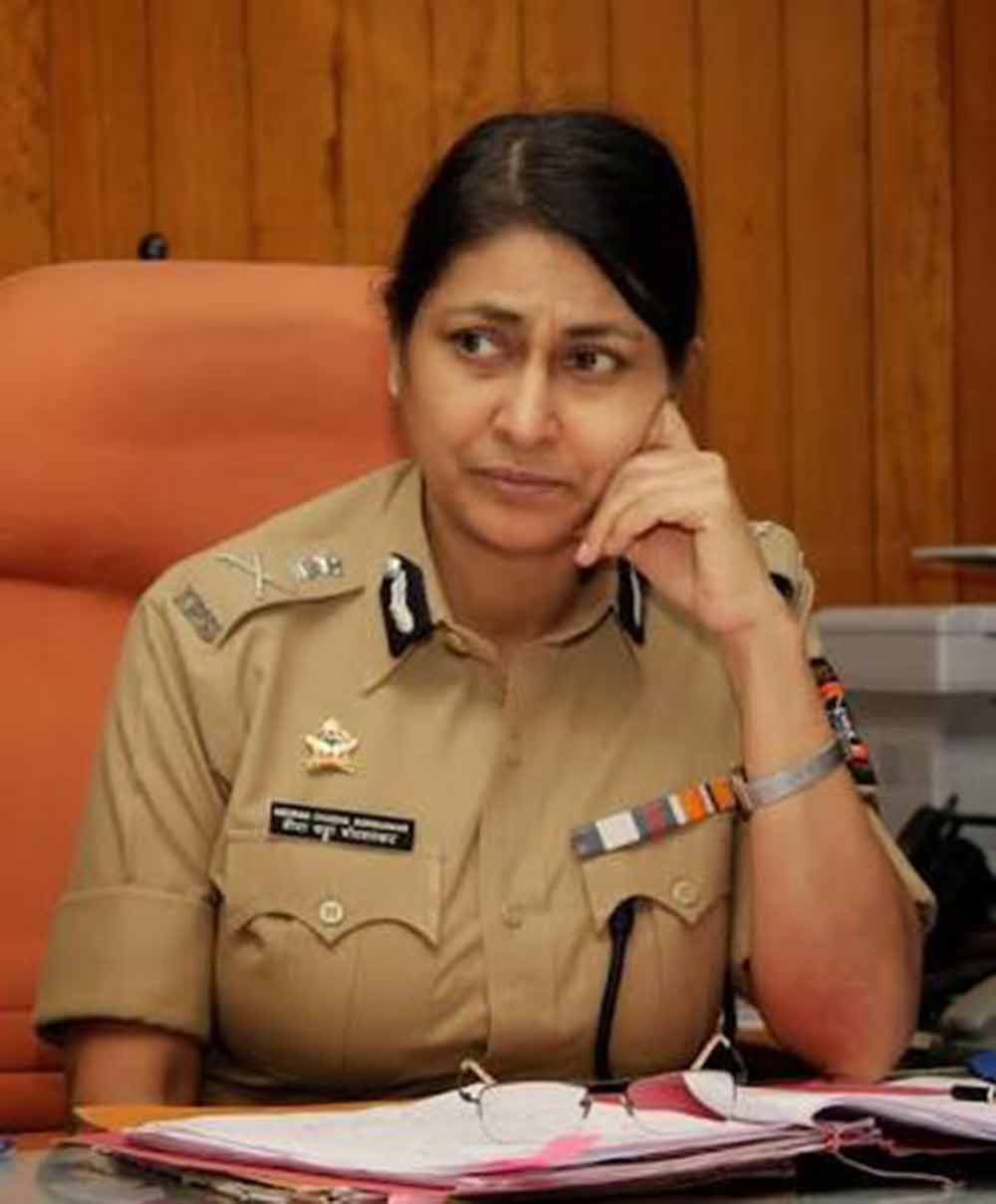
Dr Meera Chadha Borwankar
In 1981, Borwankar was posted as an IPS officer of the Maharashtra Cadre, where she served as the Deputy Commissioner of Police, Mumbai, and went on to become the first woman to head the city’s Crime Branch Department in 2001. She is credited for solving many reputed cases, including the Abu Salem extradition, the Jalgaon sex scandal, the Iqbal Mirchi case, and others. She witnessed the hanging of Yakub Menon in 2015, and was the inspiration behind the movie Mardaani. She has received many awards including the President’s medal in 1997, the Police medal and the Director General’s Insignia.
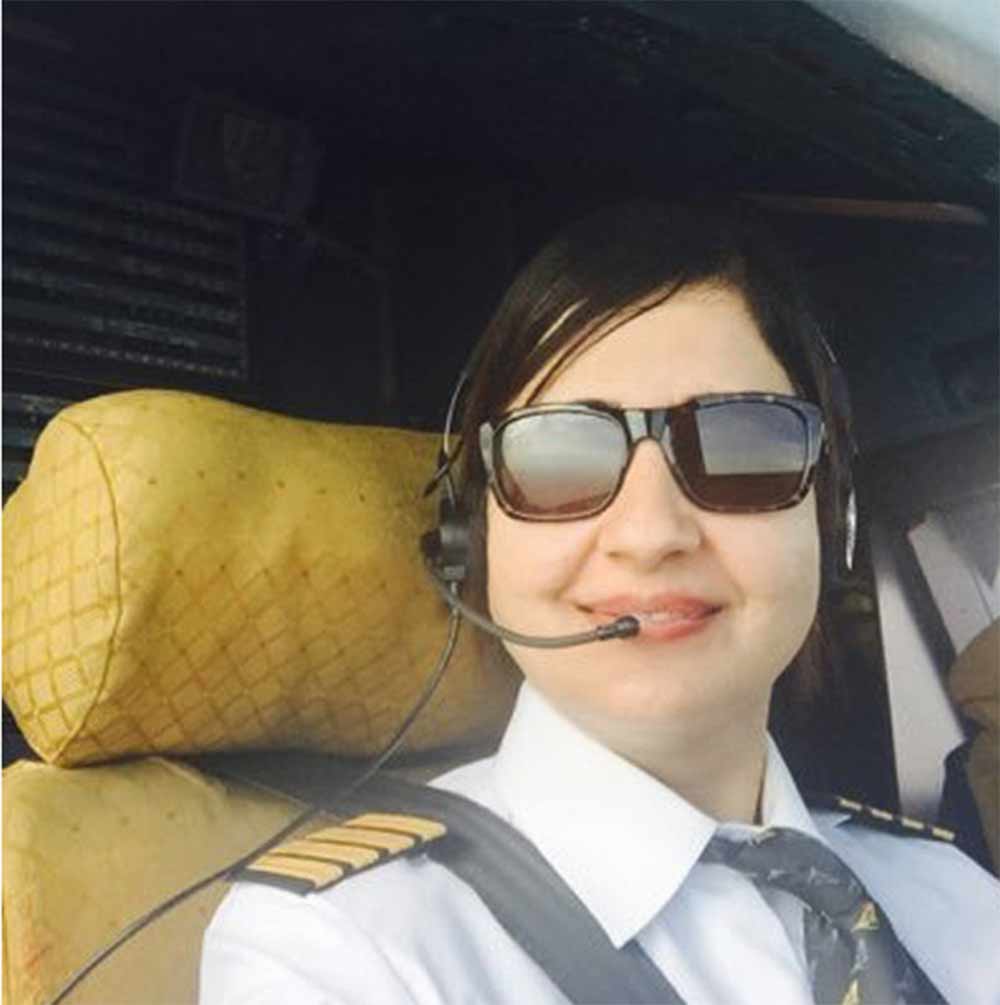
Dr Ruveda Salam
Salam became the first IPS officer, man or woman, from the valley of Kashmir when she qualified for the service. But before that, she completed her MBBS from the Government Medical College in Srinagar. Once she became an IPS officer, Salam was posted in Chennai as the Assistant Police Commissioner. In 2015, she decided to appear for the UPSC again, this time qualifying for the Indian Administrative Services. Since then, Salam has been posted as the Assistant Commissioner Income Tax officer in Jammu, where she inspires Kashmiri girls every day to appear for the UPSC.
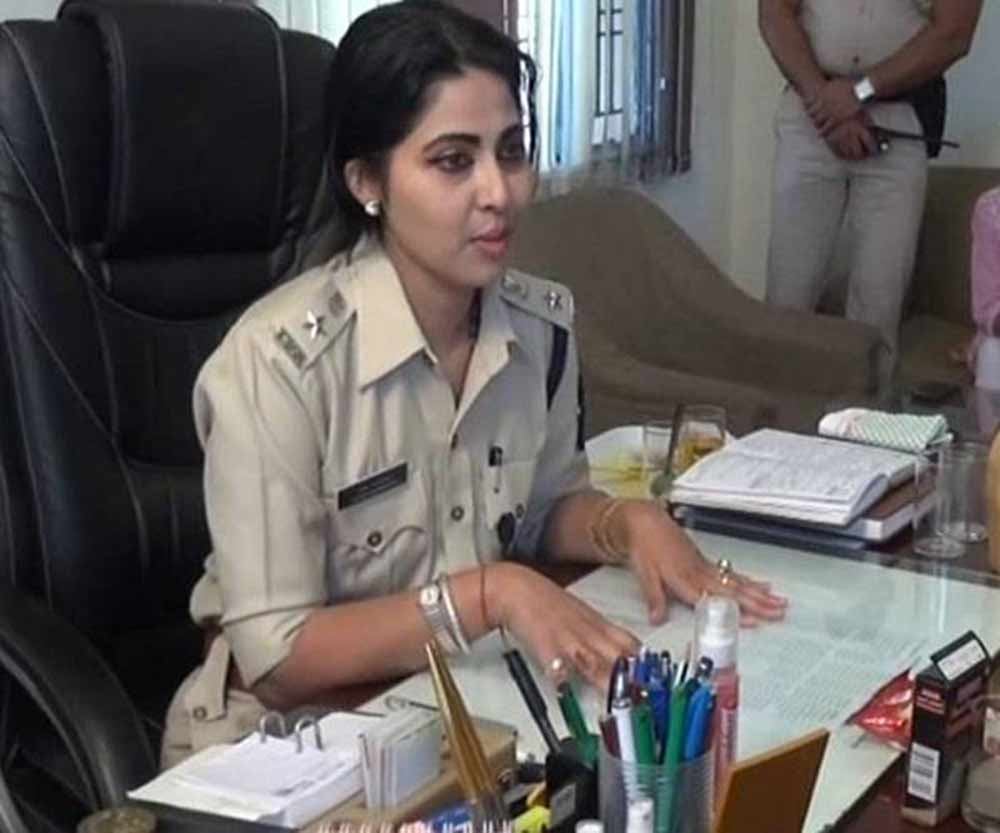
Soumya Sambasivan
Sambasivan became Shimla’s first IPS officer when she qualified the UPSC exams in 2010. Once posted with the Himachal Police, Sambasivan started an investigation against the drugs mafia operating in the state—an effort for which she was nominated for the President’s Medal. During her posting at the Sirmaur district for two years, she solved six murder cases. To curb incidents of molestation in the state, she started teaching school and college girls how to make special pepper sprays using items they can find at home for regular use. This effort made the news in 2020, getting Sambasivan’s role the attention and accolades she deserved.
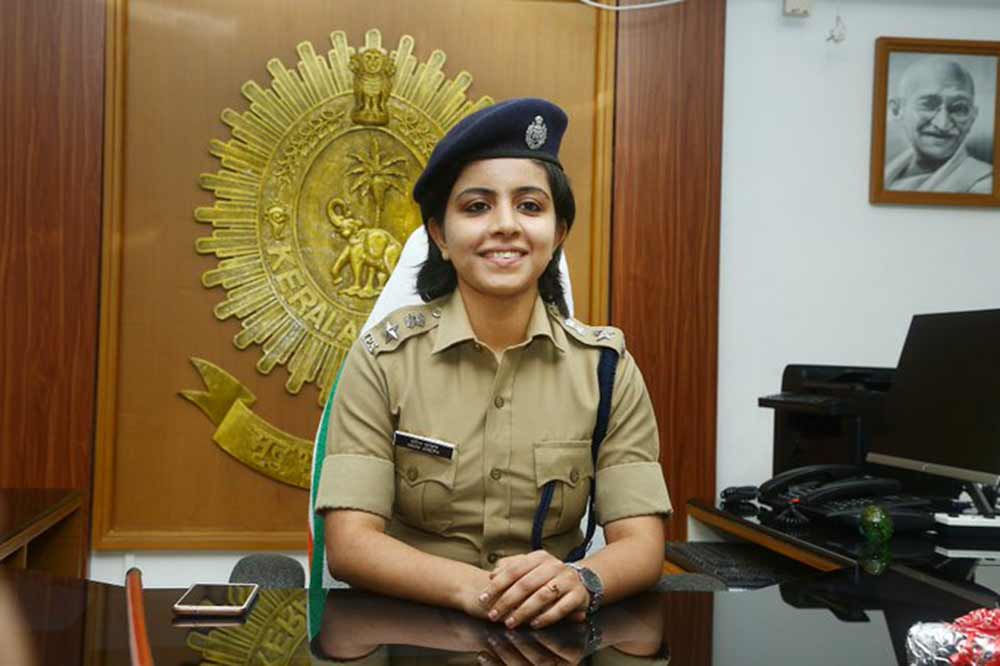
Merin Joseph
Born in 1990, Joseph became the youngest IPS officer to qualify for the Kerala Cadre at the age of 25 in 2012. She was trained at the Sardar Vallabbhai Patel National Police Academy in Hyderabad, and led the Indian Delegates for the Y20 Summit. In June 2019, Joseph took charge as the Commissioner of Kollam district, and came across a two-year-old child rape case. She travelled with her team to Riyadh, Saudi Arabia, to arrest the accused in the case, which got her and the case all the attention it deserved.
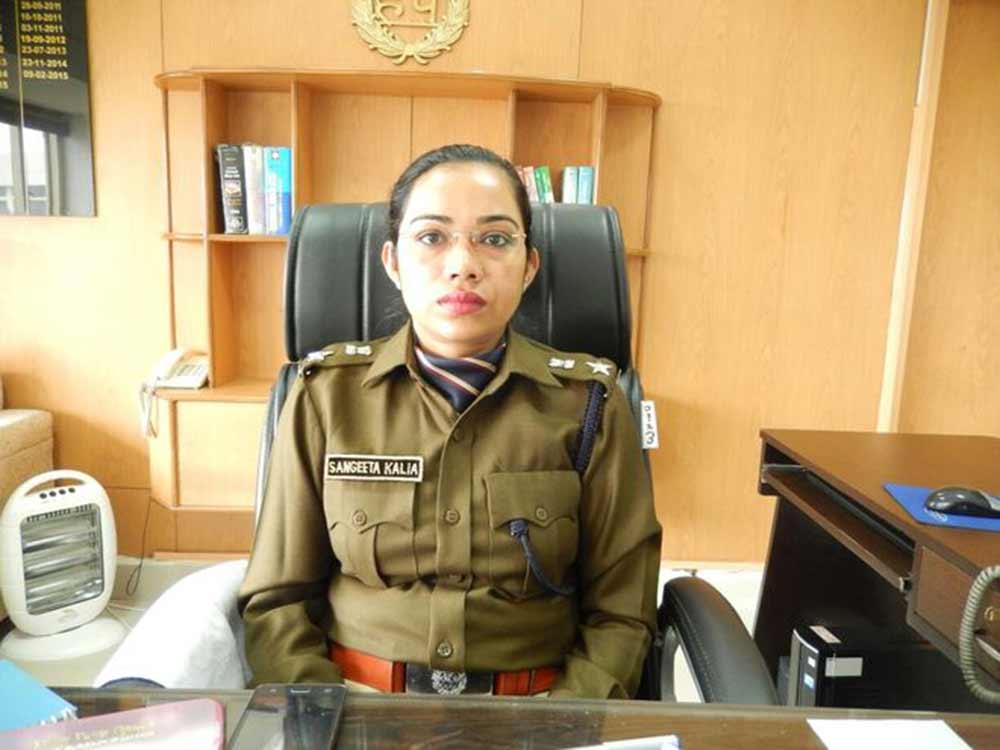
Sangeeta Kalia
Kalia passed the UPSC in 2009, and in 2010, she joined the Haryana Police as an IPS officer. It was, however, in 2015 while serving as the Police Superintendent in Fatehabad, Haryana, that Kalia gained a lot of attention. She had a very well reported argument with the state’s health minister, Anil Vij. The minister told her to “get out”, and when she refused to do so and stood her ground, she was transferred to a different district. After this incident, Kalia got immense support from all quarters for standing up to the misuse of power many politicians engage in.
How You Can Become An IPS Officer
Inspired by these amazing women IPS officers, if you too want to follow their footsteps and become an IPS officer, here are the steps you need to take.
• Apply for the UPSC exams. This exam is divided into three parts, the preliminary exams, the main exams and the interview. You need to pass all three to qualify for the IPS.
• In addition to these three exams, you also have to appear for a physical test to qualify for the IPS.
• In case you do not pass the UPSC exams in one attempt, know that many don’t. In fact, most people who qualify may make multiple attempts before passing the exams and all its stages with flying colours.
Becoming an IPS officer is a rigorous process that involves clearing the Civil Services Examination conducted by the Union Public Service Commission (UPSC). Aspiring candidates need to prepare diligently and stay committed to their goal.
Ilma Afroz
Ilma Afroz's achievements as an IPS officer highlight the potential for women to excel in this field and serve their nation with pride.
N Ambika
N Ambika's dedication to maintaining law and order in Karnataka is a shining example of women's contributions to the IPS.
Roopa Moudgil
Roopa Moudgil, a dedicated officer, has exposed corruption and misconduct, proving that women in the IPS can make a significant impact.
Chhaya Sharma
Chhaya Sharma's leadership in solving complex criminal cases demonstrates the determination of women IPS officers in ensuring justice.
How to Start Your Journey to Become an IPS Officer
Embarking on the journey to become an IPS (Indian Police Service) officer is a challenging yet rewarding path. This prestigious service allows you to serve the nation and make a significant impact on law enforcement and public safety. Here's a step-by-step guide to help you get started on your journey:
Understand the Role of an IPS Officer:Before you begin, it's essential to have a clear understanding of the roles and responsibilities of an IPS officer. IPS officers are responsible for maintaining law and order, investigating crimes, and ensuring the safety and security of citizens.
Educational Qualifications:To be eligible for the IPS exam, you must hold a bachelor's degree from a recognized university. The degree can be in any discipline.
Age Eligibility:The age limit for the Civil Services Examination, which includes the IPS exam, is typically between 21 and 32 years. There are relaxations for certain categories, so check the latest notifications.
Choose Your Optional Subjects:The Civil Services Examination includes a written examination with optional subjects. Choose your optional subjects carefully, considering your strengths and interests.
Prepare for the Civil Services Examination:The Civil Services Examination is a highly competitive exam and consists of three stages: the Preliminary Exam, the Main Exam, and the Interview. Comprehensive preparation is essential.
Invest in quality study materials and consider joining a reputable coaching institute, if possible.
Devote time to all sections of the exam, including General Studies, Optional Subjects, and the Essay.
Stay Informed:Develop a habit of staying informed about current affairs, national and international events, and government policies. Regularly read newspapers, magazines, and online news sources.
Practice Mock Tests:Take mock tests and practice previous years' question papers. This will help you become familiar with the exam pattern and improve your time management skills.
Maintain Physical Fitness:Physical fitness is crucial for IPS officers. Regular exercise and a healthy lifestyle are important. Consider participating in sports or fitness activities.
Develop Leadership Skills:IPS officers need strong leadership skills. Engage in extracurricular activities, community service, or volunteer work to develop and demonstrate your leadership abilities.
Apply for the Civil Services Examination:Monitor the UPSC (Union Public Service Commission) website for notification of the Civil Services Examination. Pay attention to the application process, exam dates, and other relevant information.
Clear the Interview:If you qualify for the Main Exam, you will be called for a personal interview. Prepare for this interview by refining your communication skills, staying updated on current affairs, and practicing mock interviews.
Maintain Determination:The journey to becoming an IPS officer is arduous and competitive. There may be failures and setbacks. Maintain determination and resilience to overcome challenges.
Ethics and Integrity:Uphold a strong sense of ethics and integrity throughout your journey. IPS officers are expected to demonstrate the highest standards of honesty and integrity.
Stay Updated with Changes:Keep an eye on any changes in the exam pattern or eligibility criteria by regularly checking the UPSC website and official notifications.
Stay Positive and Patient:The journey can be long and challenging, but maintaining a positive attitude and patience is essential. Believe in your capabilities and stay committed to your goal.
Becoming an IPS officer is a prestigious and rewarding career choice. While the journey is demanding, the impact you can make on society is profound. Stay dedicated to your preparation, and with perseverance and hard work, you can achieve your dream of serving the nation as an IPS officer.
Conclusion
In conclusion, women IPS officers who have made India proud have broken barriers, demonstrated exceptional dedication, and contributed significantly to law enforcement, national security, and social justice. Their remarkable achievements go beyond individual recognition; they represent a significant step toward gender equality and improved policing in India. Celebrating the accomplishments of these officers is important for inspiring future generations, enhancing diversity in the police force, and encouraging a more inclusive and gender-sensitive approach to law enforcement. Their dedication and professionalism serve as a source of pride and inspiration for the nation.
FAQs
Q1: What is the role of an IPS officer?
A1: IPS officers are responsible for maintaining law and order, investigating crimes, and upholding justice in India.
Q2: How can I become an IPS officer?
A2: To become an IPS officer, you need to clear the UPSC Civil Services Examination.
Q3: Are there specific physical requirements to become an IPS officer?
A3: Yes, IPS aspirants need to meet specific physical fitness standards, including height, weight, and eyesight requirements.
Q4: Who was the first woman IPS officer in India?
A4: The first woman IPS officer in India was Kiran Bedi.
Q5: How can I prepare for the Civil Services Examination to become an IPS officer?
A5: To prepare for the Civil Services Examination, you can start by selecting the right optional subjects, creating a study plan, and practicing previous year's question papers.
Q6: What is the role of an IPS officer in India?
A6: IPS officers are responsible for maintaining law and order, preventing and investigating crimes, and upholding justice in India.
Q7: Can women join the IPS?
A7: Yes, women can join the Indian Police Service (IPS) and have been making significant contributions in the field of law enforcement.
Q8: How do I apply to become an IPS officer?
A8: To become an IPS officer, you need to clear the Civil Services Examination conducted by the Union Public Service Commission (UPSC).
Q9: Are there physical requirements to become an IPS officer?
A9: Yes, there are specific physical fitness standards that IPS aspirants need to meet, including height, weight, and eyesight requirements.
Q10: Can women achieve high-ranking positions in the IPS?
A10: Absolutely, women in the IPS have achieved high-ranking positions, such as Director General of Police, and continue to excel in various leadership roles.